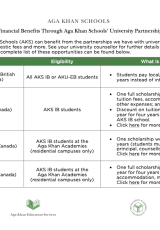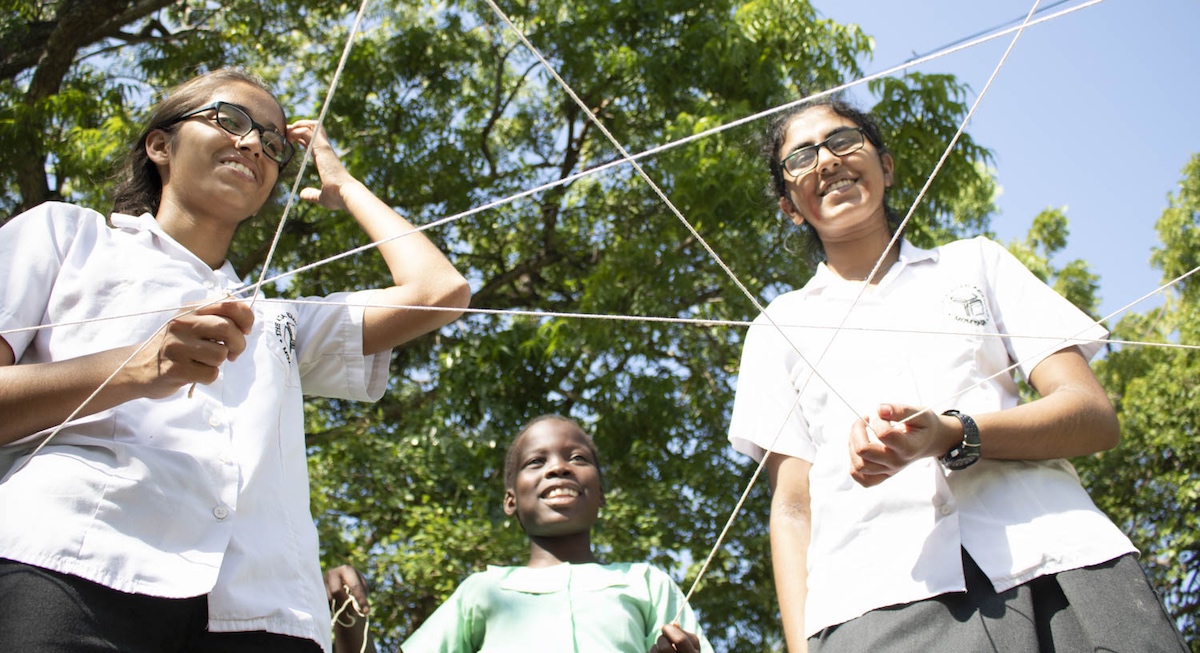Developing Resilient Future Leaders
Students at the Aga Khan Academies are encouraged to develop resilience, courage and the tenacity to grow into future leaders. Through the academic curriculum and the support they receive from their teachers and parents, the students develop the strength to tackle life’s challenges both during their academic life and long into their future careers. Studies have shown that children who are able to delay gratification achieve higher results later in life. Dr Jonathan Long, the Head of The Aga Khan Academy Hyderabad, talks about how we develop resilient future leaders.
Resilient Children According to Research
One of the most famous behavioural experiments of the 20th century was carried out at Stanford University in 1972. A marshmallow was offered to children on the understanding that if they could resist eating the marshmallow, they would receive two later on. How long each child resisted the temptation was carefully noted. The study drew fascinating conclusions. Children who were able to delay gratification at the age of four were significantly more competent, achieved higher SAT scores and were more successful across a wide range of criteria. Children who were most impulsive at age 4 went on to score lower in the SAT test. This response turns out to be twice as good at predicting success than IQ tests!
Less well known is a follow-up to this experiment carried out by researchers at the University of Rochester in 2012. In this experiment, before offering the marshmallows, the children were split into two groups. The first group was given a number of “unreliable experiences” before the marshmallow test. For instance, the researchers promised to give the children certain things but never did. The second group was given a number of “reliable experiences”. For instance, whenever the children were promised something, it actually happened.
When the marshmallow experiment was then carried out, the impact was predictable but fascinating. The children who had unreliable experiences beforehand had no reason to trust the researchers and ate the marshmallow before waiting for a second one. The children in the group who had reliable experiences beforehand saw the advantages of delayed gratification and waited for the second marshmallow! In other words, the children’s ability to demonstrate self-control was strongly influenced by the experiences that surrounded them. Just a few minutes was enough to nudge the children one way or another.
Learnings from the Marshmallow Experiment
There are two important lessons here. First, if we want to develop resilient future leaders, they’ll need to develop the ability to defer gratification – to choose to do something harder than to choose to do something much easier. Second, and most importantly, young people develop greater self-control and the ability to delay gratification if they are in an environment which is reliable, predictable and delivers on what it promises.
The remarkable link between impulse control and success points us to a deeper wisdom when it comes to nurturing young leaders - that the path of least resistance is not always the best path and that the benefits of sticking with something difficult and challenging can yield a greater reward. According to University of Pennsylvania psychologist, Angela Duckworth, this ability to stick with things (what she calls “grit”) matters more in achieving our full potential than intelligence, skill, or even grades.
The Work of the Aga Khan Academies
So, what methods do we use to develop resilient future leaders through the work of the Aga Khan Academies?
We Challenge our Students
It is important to deliberately offer young people challenges, knowing full well that some of the challenge will be daunting. Exposure to challenge, in a secure environment and appropriately reflected upon, can awaken a self-belief and resilience which can be transformative. Students from the Aga Khan Academy and Hyderabad and Mombasa are getting ready for an exchange programme. For 13 weeks, students will swap schools and immerse themselves in a new culture and a way of life whilst they learn about their host community, and ultimately, themselves.
We Make Students Accountable
At the Aga Khan Academies, we hold young people to the commitments they make. In other words, helping them to experience the benefits of perseverance. This means supporting and encouraging them when the going gets tough! Creativity, activity, service (CAS) is an important component of the IB curriculum and is required for every Diploma Programme student at the Academy. Students participate actively in a variety of creative endeavours, physical activities and community service projects. They develop self-confidence, teamwork and leadership skills, and a sense of civic responsibility.
We Encourage our Students to Tackle New Tasks
Students are encouraged to try new challenges even if we know it may lead to failure. At the heart of Maria Montessori’s approach to education was the belief that the experience of success after an initial difficulty is the essence of meaningful education! Over the recent school break, 65 students from the Aga Khan Academy in Hyderabad participated in the summer service internship programme. This programme pushed the students out of their comfort zones and involved contributing towards development of communities spanning across diverse geographic, social, economic and ethical boundaries of India through 24 partner organisations. This programme is central to an AKA education and visible at each Academy.
We Value Pastoral Care
We endeavour to create “reliable environments” for young people to live and work in – one where promises are kept and individuals are urged to stay true to their word. Pastoral care is an important part of campus life; teachers and dorm parents are available to assist students when required. In addition, a school counsellor is accessible and can provide additional support.
Parents are also part of the partnership in developing resilient leaders. By working with the teachers to encourage self-reliance, by praising children and also leading by example will provide children with a solid basis to become resilient.
Qualities of resilient leadership grow when young people have to make decisive personal choices between right and wrong and learn to accept the consequences of either path; when they develop the self-efficacy to stand on their own two feet and accept responsibility even when it involves challenge and when they pick themselves up from a fall and have the chance to try again in a supportive and caring environment. The great German educationalist and founder of the Outward Bound movement, Kurt Hahn, put it well when he said, “There is more in us than we know. If we can be made to see it, perhaps for the rest of our lives we will be unwilling to settle for anything less.”
publications





